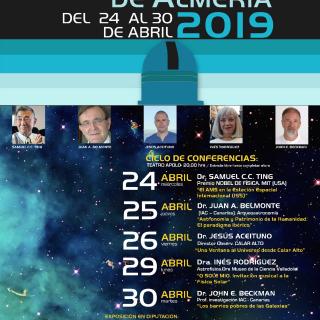Bibcode
Knežević, S.; Läsker, Ronald; van de Ven, Glenn; Font, J.; Raymond, John C.; Bailer-Jones, Coryn A. L.; Beckman, J. E.; Morlino, Giovanni; Ghavamian, Parviz; Hughes, John P.; Heng, Kevin
Bibliographical reference
The Astrophysical Journal, Volume 846, Issue 2, article id. 167, 30 pp. (2017).
Advertised on:
9
2017
Journal
Citations
16
Refereed citations
14
Description
We present Hα spectroscopic observations and detailed modeling of
the Balmer filaments in the supernova remnant (SNR) Tycho (SN 1572). We
used GH α FaS (Galaxy Hα Fabry–Pérot
Spectrometer) on the William Herschel Telescope with a 3.‧4
× 3.‧4 field of view, 0.″2 pixel scale, and {σ
}{instr}=8.1 km s‑1 resolution at 1″
seeing for ∼10 hr, resulting in 82 spatial‑spectral bins that
resolve the narrow Hα line in the entire SN 1572 northeastern rim.
For the first time, we can therefore mitigate artificial line broadening
from unresolved differential motion and probe Hα emission
parameters in varying shock and ambient medium conditions. Broad
Hα line remains unresolved within spectral coverage of 392 km
s‑1. We employed Bayesian inference to obtain reliable
parameter confidence intervals and to quantify the evidence for models
with multiple line components. The median Hα narrow-line (NL) FWHM
of all bins and models is {W}{NL}=(54.8+/- 1.8) km
s‑1 at the 95% confidence level, varying within [35,
72] km s‑1 between bins and clearly broadened compared
to the intrinsic (thermal) ≈20 km s‑1. Possible line
splits are accounted for, significant in ≈ 18 % of the filament, and
presumably due to remaining projection effects. We also find widespread
evidence for intermediate-line emission of a broad-neutral precursor,
with a median {W}{IL}=(180+/- 14) km s‑1
(95% confidence). Finally, we present a measurement of the
remnant’s systemic velocity, {V}{LSR}=-34 km
s‑1, and map differential line-of-sight motions. Our
results confirm the existence and interplay of shock precursors in
Tycho’s remnant. In particular, we show that suprathermal NL
emission is near-universal in SN 1572, and that, in the absence of an
alternative explanation, collisionless SNR shocks constitute a viable
acceleration source for Galactic TeV cosmic-ray protons.
Related projects

Kinematic, Structural and Composition Studies of the Interstellar and Intergalactic Media
The basic objective of the broject is to investigate the evolution of galaxies by deepening our understanding of the interaction between the insterstellar medium and the stars.The main technique which we use is the two-dimensional kinematic study of whole galaxies observed using our instrument:GHaFaS, a Fabry-Perot interferometer on the William
Prof.
John E. Beckman